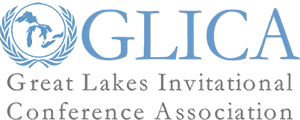Human Trafficking
- Home
- »
- GLIMUN 2022 Conference
- »
- GLIMUN Past Conferences
- »
- SIMUN 2022 Committee Archives
- »
- Human Trafficking
General Assembly: Social Humanitarian & Cultural Committee
Topic: Human Trafficking
Human trafficking and migrant smuggling continue to pose major problems for nations, communities, and individuals across the world. Per the United Nations, human trafficking and migrant smuggling occurs in organized networks, taking advantage of vulnerable populations for profit. The United Nations Office on Drugs and Crime is the leading United Nations agency charged with combatting human trafficking. The most common forms of trafficking in persons are sexual exploitation, with predominantly female victims, followed by forced labor. Statistics and figures regarding forced labor are at a higher risk of being misrepresented as forced labor is less frequently reported than sexual exploitation. The UNODC also reports that nearly 20% of victims of human trafficking are children, but there are parts of the world where children represent most of the victims.
In 2000, the UN Protocol to Prevent, Suppress and Punish Trafficking in Persons was adopted as part of the UN Convention against Transnational Organized Crime, which serves as a legally binding agreement with a definition of trafficking. The United Nations Office on Drugs and Crime assists in the implementation of the protocol by helping communities develop legislation to combat human trafficking, training law enforcement to apprehend traffickers while supporting survivors, providing tools appropriately and effectively for training and policy reform relating to human trafficking, and creating partnerships with nations and NGOs to support investigation of human trafficking. Outside of the efforts of the United Nations, non-profit organizations have been established to serve certain areas of the world, such as Polaris in the United States.
The UNODC Global Report on Trafficking in Persons details overviews for each region and the status of human trafficking in each region. In most of Europe North America, and South America, sexual exploitation is the primary form of human trafficking reported, however, in Central Asia, forced labor is the predominant form of human trafficking. North Africa and the Middle East, though, present a wide array of forms of exploitation. Such an array of manifestations of human trafficking across the world certainly call for a multi-faceted approach by the Social and Humanitarian Committee to combat human trafficking.
Focus Questions:
1. Is your country a place of origin, a place of transit, a place of destination, or some combination? What kinds of exploitation are victims of trafficking in your country facing?
2. What economic, social, or political forces are contributing to human trafficking in your country?
3. Where should anti-trafficking efforts be focused? Protection? Awareness?
Research Links:
UN Protocol to Prevent, Suppress and Punish Trafficking in Persons:
https://www.unodc.org/res/human-trafficking/2021the-protocol-tip_html/TIP.pdf
UNODC Global Report on Trafficking in Persons, 2020:
https://www.unodc.org/unodc/data-and-analysis/glotip.html


